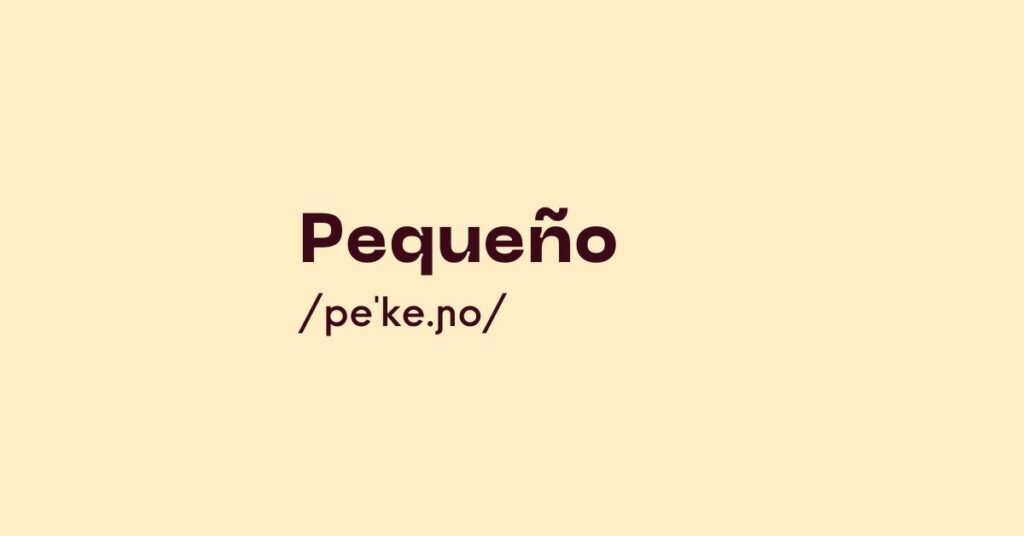Today’s Spanish word of the day is “pequeño” in the masculine form, or “pequeña” in the feminine form.
It’s an adjective that can mean “small”, “little” or “young” depending on context.
Like in English, you can refer to younger siblings by referring to them as “little”, for example:
- Mi hermano pequeño. – My younger brother.
While the word “pequeño” is the most commonly taught word for “small” in Spanish, in some countries such as Mexico and the Southern Cone countries (Chile, Uruguay and Argentina) it sounds a bit formal, and the word “chico” is used more in everyday speech to mean “small”, for example:
- Es un pueblo chico donde todos se conocen. – It’s a small town where everyone knows each other.
- La camiseta me quedó chica. – The t-shirt was too small for me.
The word “pequeño” is thought to come from a Vulgar Latin word that would have been something like piccinus (source). It’s thought this word derived from baby talk or the language adults often use with children, a bit like the words “itty-bitty” or “teeny-weeny” in English. Most Romance languages have a word thought to come from this Late Latin root, for example French and Catalan “petit” (“small/little”), and Italian “piccino” (“little” or “child”). In Spanish, the words “pequeñín” (masculine) and “pequeñina” can be used as affectionate terms for children.
Example sentences
Vivimos en un apartamento pequeño.
We live in a small apartment.
Este pueblo es pequeño pero acogedor.
This town is small but cozy.
Necesito una maleta más pequeña que pueda llevar como equipaje de mano.
I need a smaller suitcase I can take as hand luggage.
El Salvador es el país más pequeño donde el español es el idioma oficial.
El Salvador is the smallest country where Spanish is the official language.
Hizo una pequeña fortuna con su invento.
She made a small fortune with his invention.

